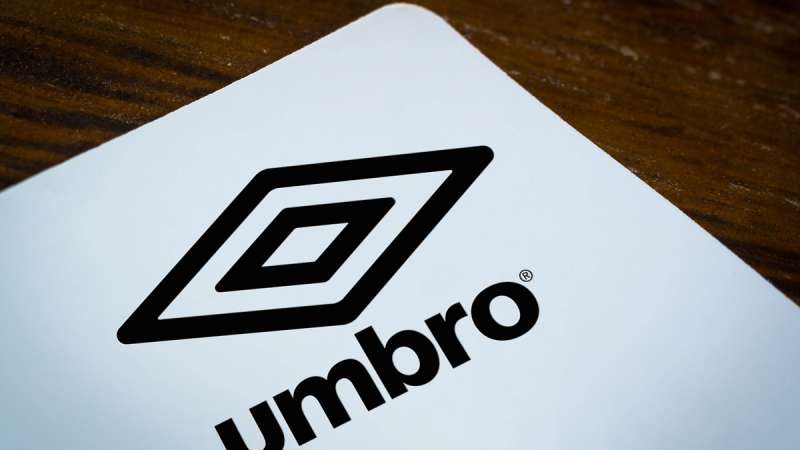What is a Freezing Order?
A freezing order is an interim injunction that restrains a party from disposing of or dealing with its assets.
The purpose of obtaining a freezing order is ordinarily to preserve the defendant's assets until judgment can be obtained or enforced.
Freezing orders are considered to be a draconian measure and therefore, will only be granted in exceptional circumstances. It is therefore important that you obtain specialist legal advice before commencing proceedings, which may be urgent and costly.
Our litigation solicitors are experienced in both obtaining and defending applications for freezing orders.
How we can help you
An undertaking in damages must be given by the applicant before the Court will grant a freezing order, this enables payment of any damages that the other side may suffer as a result of the freezing order being granted, perhaps under circumstances where it ought not to have been. This has to be considered seriously, before making an application for a freezing order.
Myerson is a nationally recognised law firm with a large, experienced team of commercial litigation solicitors. . We are the only Manchester and Cheshire law firm member for the MSI Global Alliance, a top 20 ranked, leading, international association of independent professional firms.
Our commercial litigation solicitors have the expertise to advise on this complex area, we work swiftly and efficiently to review matters whilst advising on the action required at an appropriate cost.
Our experience
An example of our recent work in this area includes acting on behalf of a construction company which was owed a significant amount of money pursuant to a JCT contract. The money was due to come from the proceeds of sale of flats, built by our client, who had suspicions that the defendant would not honour its obligations and the sale proceeds would be at risk of dissipation. Instructions were received to apply for a freezing order on a Tuesday and the application was made to the court on the Friday of the same week. The order was granted preventing the defendant from disposing of the property or the proceeds of sale.
What to do next?
Our experts at Myerson are happy to discuss your situation in a no-obligation telephone call to assess your claim, give preliminary advice and suggest a way forward.
We can also suggest innovative funding solutions where available to assist with the costs of the litigation.
Why Work With Our Dispute Resolution Team
- For the past seven years, the Legal 500 has rated us as a Top Tier legal firm.
- You will get access to more than 9 dispute resolution professionals from the Myerson Dispute Resolution Group, who will assist you with , shareholder, and partnership disputes, professional negligence, commercial agency and more
- You will obtain city-quality dispute resolution legal help at regional pricing.
- We offer a partner-led service to make sure you get the greatest legal counsel and support with a focus on business.
- Our large and experienced team can work quickly to fulfil your deadlines.
- We recognise that each transaction is unique to your specific circumstances and that you require the assistance of a dispute resolution solicitor who has dealt with a wide range of clients and types of work.
- We are a full-service law company with a single location, which ensures our employees interact effectively and efficiently.
- We employ the most recent technology to make sure that we are operating as effectively as possible and that a client's location is not a barrier to us providing outstanding customer service.
- All of our clients receive free newsletters and webinars that keep them informed about dispute resolution legal developments. View our most recent webinar on dispute resolution updates here.
- Check out the Myerson Promise for more information on the benefits of working with us.
Frequently Asked Questions
We answer some of the frequently asked questions on freezing orders we are regularly asked by our clients:
What does a freezing injunction do?
A freezing injunction, or freezing order, temporarily stops someone from removing assets located within England and Wales, or from dealing with assets that they may have elsewhere in the world.
The order can relate to all of the defendant’s assets generally or to specific assets. The most common type of order will put a maximum sum which is limited to the value of the claim.
The courts in England and Wales can also grant a freezing order if the defendant has assets in England and Wales and someone has commenced proceedings against them in another country.
What assets can be frozen?
In short, all types of assets can be frozen. This includes:
- bank accounts
- shares
- motor vehicles
- land
However, the court will not grant an order which is overly oppressive, for example, it will grant an order which would force a business to stop trading or if an individual cannot pay for living expenses and reasonable legal costs.
Why would I need to get a freezing order?
If you have started proceedings against someone who has assets that you believe they may try to dispose of or otherwise try to put out of your reach, a freezing order preserves those assets in the event that you win a judgment against them and you need to recover damages and costs. However, a freezing order does not give you security over the assets.
How do I get a freezing order?
You will need to apply to the High Court with a “without notice” application.
This means that the defendant will not be notified of your application until after the hearing. You will have a duty as the claimant to disclose all relevant information at the hearing because the defendant will not have the opportunity to make representations to the judge.
Legal advice should be sought when making a without notice application as you will also be required to give undertakings (legally-binding promises) to the court.
You must provide evidence to support your application and sign an affidavit (a statement given under oath to the court). Freezing orders are very restrictive on the defendant, so the court may not grant the freezing order even if you have met all of the necessary requirements.
For this reason, the court will only grant a freezing order if it is “just and convenient”.
A freezing order will only be granted until the next hearing which the defendant will have notice of and will be allowed to challenge the order.
If the order is not discharged at this next hearing, it will continue only until judgment or a further order is made by the court. The exception to this is where a freezing order is granted after the judgment has been made, and in this case the freezing order will remain in force indefinitely until payment is made.
What do I need to establish to obtain a freezing order?
The courts have set out six conditions to obtain a freezing order.
- You must have a legal or equitable claim.
- The English court must have jurisdiction.
- You must have a good arguable case.
- Assets must exist.
- You have to prove that there is a risk that the assets will be dissipated.
- You have to provide an undertaking in damages.
How do I prove a dissipation risk?
You have to show that there is a real risk that a judgment against the defendant will not be paid unless restrained by an injunction, without which the defendant will dissipate or dispose of assets or that assets will be dealt with so as to make enforcement of a judgment more difficult.
What is an undertaking in damages?
Before the court will grant a freezing order you have to undertake to the court to pay any damages that the other side or any other party notified of the order might suffer as a result of the freezing order being granted if, at a later date the court decides the order ought not to have been granted.
This has to be considered seriously before making an application for a freezing order.
When can I apply for a freezing order?
Most freezing orders are sought before the main proceedings are started because the claimant already has concerns that the defendant will try to dispose of their assets to avoid paying any sums due under a judgment.
However, a freezing order can also be sought after a trial has concluded until the judgment has been enforced.
When is a freezing order not available?
A freezing order cannot be obtained if:
- the defendant has filed an acknowledgement of service or a defence (unless the court gives permission)
- in proceedings against the Crown
- in proceedings against a foreign state, unless that state has given written consent
- to enforce a penal law of a foreign state
What happens if someone breaches a freezing order?
A freezing order can affect third parties as well as the defendant. For example, if someone’s bank account is frozen, the bank also must ensure that it does not breach the order by allowing anyone to deal with the bank account.
A breach of a freezing order is very serious and the person who breaches the order will be held to be in contempt of court. The Court has extensive powers to impose sanctions for contempt of court which can range from a fine to imprisonment.
Meet Our Specialists
Home-grown or recruited from national, regional or City firms. Our specialists are experts in their fields and respected by their peers.
Contact Myerson Solicitors
Complete the form below, or alternatively, you can call Myerson Solicitors on:



![Unfair Prejudice Case Spotlight: Re Cardiff City Football Club (Holdings) Ltd [2022] EWHC 2023 (Ch)](/assets/Uploads/Unfair-Prejudice-Case-Spotlight-Re-Cardiff-City-Football-Club-Holdings-Ltd-2022-EWHC-2023-Ch-v2__FillWzgwMCw0NTBd.jpg)



